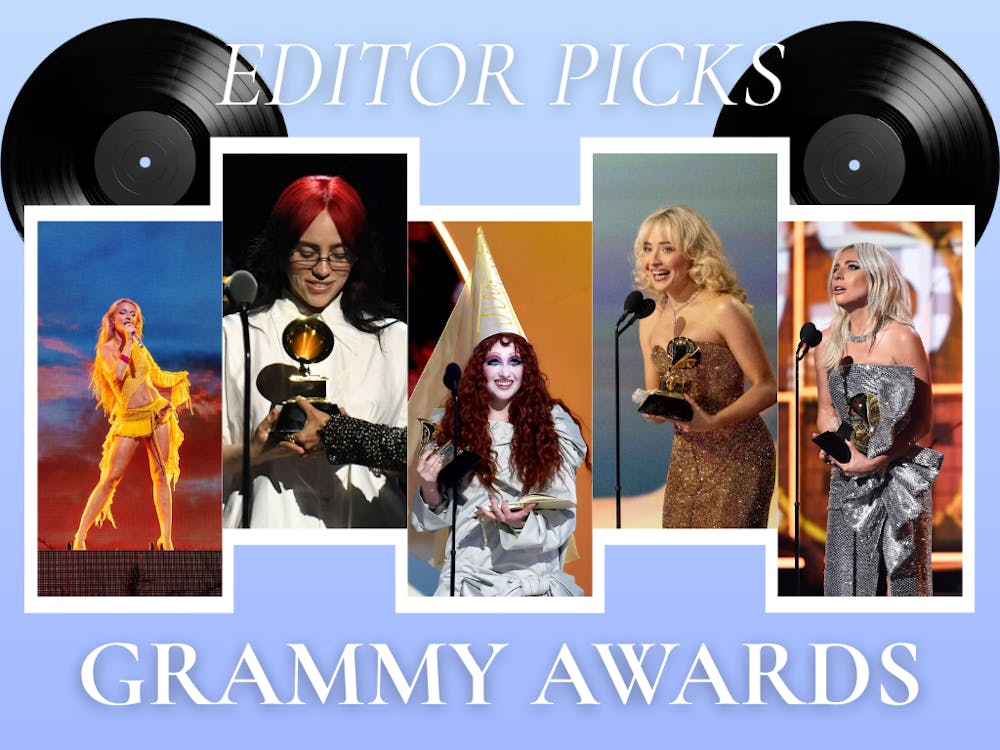"Girls" kicked off its sixth -- and last -- season on Feb. 12. The dramedy has been a magnet for public hostility since its 2012 premiere, chiefly stemming from controversial star and showrunner Lena Dunham. Complaints also generally decry its appallingly unlikable characters, as well as its nudity (excessive even by HBO's saucy standards).
But, like it or not, "Girls" is important, and maybe even revolutionary. The show, in its troubled protagonist's words, is not a singular defining millennial voice but certainly "a voice of a generation" -- and an important one.
It's easy to compare "Girls" to HBO's other New York-set, four female-led dramedy, "Sex and the City," but the former's being a generation younger isn't the only thing that sets them apart. Both feature a writer main character as the eccentric axis around which their other, equally eccentric friends revolve, but are there any other discernable similarities between Carrie Bradshaw and Hannah Horvath? Marnie's and Adam's dingy Brooklyn apartments and the "SATC" ladies' palatial suites? Is "Girls" narrated by a laptop-bound Hannah, mature enough to reflect upon her and her friends' romantic indiscretions rather than sob about them over the phone to Jessa's voicemail?
The answer, to all of the above, is no.
Before "Girls'" initial release, Dunham and producer Judd Apatow promised their show would stray from "Sex and the City" territory, as well as "Gossip Girls'", a soapy six-season romp through Manhattan's imagined prep school social scene.
"'Gossip Girl' was teens duking it out on the Upper East Side and 'Sex and the City' was women who figured out work and friends . . . there was this whole in between space that hadn't really been addressed," Dunham told The Hollywood Reporter in Jan. 2012.
That "in between space" follows the twenty-something shenanigans of Dunham's character Hannah, a struggling writer recently cut off from her parents, and her friends: neurotic Marnie (Allison Williams), freewheeling Jessa (Jemima Kirke) and peppy Shoshanna (Zosia Mamet), along with a host of males ranging from artsy and aloof to downright crotchety.
These are archetypes, and not radical or subversive by nature, but their relationships, interactions and dialogue are.
The show's fifth-season run last year may have been the first time its praise outweighed its widespread public criticism. Last April in the New York Times, Wesley Morris commended the show's "finding ways of dramatizing its satire so that it doesn't always seem satirical."
"Few shows better explore the complications of personality and behavior," Morris wrote. "The show . . . has the confidence to jump along a tightrope of displeasure."
Almost every character on the show is the textbook definition of what older generations fear about millennials: self-destructive cocktails of narcissism, apathy and the inability to communicate properly with anyone or to hold down a job (or even obtain one).
In most other millennial-targeted shows ("Gossip Girl," "Pretty Little Liars," etc.) an impenetrable barrier exists between their viewers and the flawless versions of fellow youths they see onscreen. The only thing on these shows more absurd than 30-year-olds playing high school sophomores is the drama they generate amongst themselves; it's frothy, entertaining TV, but it's not relatable.
Enjoy what you're reading?
Signup for our newsletter
"Girls" shatters this barrier, thoroughly and unapologetically. True, its home in HBO provides more opportunities than, say, The CW or Freeform, but it sets an example that other channels can follow (perhaps with less gratuitous sex scenes).
Through its titular "Girls," the show presents real twenty-somethings who make bad decisions and deal with the consequences, usually poorly. They wear underwear with holes in them and eat cupcakes for breakfast and fight over things other than boys. They candidly struggle with mental illness and they're not flawless and things don't always work out for them in the end.
TV isn't a spectator sport; anyone watching anything wants to see some parts of themselves in the show's characters. They want to be able to relate in some capacity, and usually this means reaching for trivial connections that aren't really there. With "Girls," women (and probably some men) watching, they don't have to reach.




